- Echanges et mise en réseau
- Connaissance et apprentissage
- Plaidoyer
- Nos thèmes
Le Conseil fédéral a mis en consultation sa future stratégie en matière de coopération internationale (message sur la CI). Sur le plan politique, le débat se concentrera principalement sur les moyens financiers prévus pour les années 2025-2028.

Le 20 juin 2023, le Conseil fédéral a mis en consultation sa future stratégie en matière de coopération internationale pour les années 2025-2028. Avec ce message, le Conseil fédéral doit définir son engagement à propos de différentes crises internationales. En particulier, il est essentiel que la Suisse s’engage sur le plan international dans les domaines suivants : les guerres et le possible déclin du système juridique international, le dérèglement climatique et le recul dramatique de la biodiversité, l'instabilité économique ainsi que la misère sociale croissante et les crises sanitaires.
Le Réseau Medicus Mundi Suisse participe à la consultation et, en collaboration avec ses membres, souligne déjà quelques points clés à propos des forces, mais aussi des faiblesses, de la proposition du Conseil fédéral.
La version mise en consultation se caractérise fondamentalement par sa continuité. C'est un aspect positif car le cadre actuel de la coopération internationale n’a pas besoin d’être réinventé, en particulier lorsqu’il s’agit de crises. A la différence de nombreuses autres organisations de développement étatiques, les activités de la Direction du développement et de la coopération (DDC) ne seront pas réduites - ce qui est en soi un bon signal. Le fait que le futur message établisse la santé comme une nouvelle priorité est également satisfaisant et correspond à la volonté du Conseil national qui, lors de sa session de printemps, a clairement adopté une motion dans ce sens de la Conseillère nationale Elisabeth Schneider-Schneiter.
Il faudra examiner dans quelle mesure le message parvient à apporter des réponses à la pression internationale accrue sur des droits fondamentaux comme les droits sexuels et reproductifs. En effet, si la Suisse ne parvient pas à prendre des mesures dans ce domaine, elle risque d’affaiblir son action dans des domaines comme la lutte contre le VIH/sida ou la mortalité maternelle et infantile. De même, le message devrait proposer des mesures pour répondre aux demandes légitimes de différents gouvernements d'Afrique australe, comme le besoin d'investir davantage dans le développement des capacités locales telles que la production de médicaments. En d'autres termes, le message doit aussi répondre aux exigences de la décolonisation.
Toutefois, le débat politique à venir au Parlement ne portera pas sur ces contenus stratégiques, mais uniquement sur les ressources financières que la Suisse sera prête à mettre à disposition de la solidarité internationale. Dans cette perspective le Conseil fédéral a certes légèrement augmenté le montant global prévu par rapport à la période actuelle, mais, dans le même temps, il a également intégré une partie de l’aide humanitaire et de la reconstruction de l’Ukraine dans les budgets de la CI. De ce fait, il reste effectivement moins de moyens pour le Sud global. Un pays riche comme la Suisse peut mieux faire, en particulier en respectant enfin l’objectif de 0.7% fixé par l’ONU. Nous verrons si, dans un an, le Parlement nouvellement élu fera preuve de la clairvoyance nécessaire.
Martin Leschhorn Strebel
Réseau Medicus Mundi Suisse
E-Mail

"Les milieux intéressés pourront s’exprimer au cours des trois prochains mois sur le projet de nouvelle stratégie de coopération internationale (CI). La consultation publique marque une étape importante en vue de l’adoption, planifiée pour le printemps 2024, de la stratégie CI 2025-2028 par le Conseil fédéral. Une enveloppe de 11,45 milliards de francs est prévue pour la stratégie CI. Par sa coopération internationale, la Suisse contribue à la liberté, à la sécurité et à la prospérité sur son territoire et dans le monde. Elle fait en outre preuve de solidarité face aux défis planétaires."
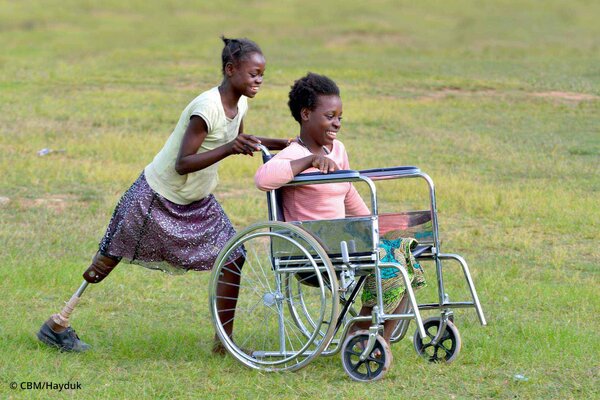
Positionspapier zu einer schweizerischen internationalen Zusammenarbeit, die niemanden mehr zurücklässt
"Die Schweiz verabschiedet alle vier Jahre eine Strategie, in der sie die Ziele und Schwerpunkte ihrer internationalen Zusammenarbeit festhält. Nun ist es wieder so weit: Der Entwurf der «IZA-Strategie 2025 – 2028» wurde am 20. Juni 2023 in die öffentliche Vernehmlassung gegeben. Damit ist die politische Debatte darüber eröffnet, wie es mit der internationalen Zusammenarbeit der Schweiz weitergehen soll. Das Swiss Disability and Development Consortium (SDDC) – bestehend aus CBM Schweiz, FAIRMED, Handicap International und der International Disability Alliance (IDA) – fordert, dass dem Prinzip «leave no one behind» endlich die nötige Priorität zu Teil wird. Dies, indem in der neuen IZA-Strategie die Inklusion von Menschen mit Behinderungen explizit verankert wird, die DEZA dies als transversales Thema vorantreibt und die Umsetzung der UNO Behindertenrechtskonvention (BRK) ganz oben auf ihre Prioritätenliste setzt."

Martin Leschhorn, Geschäftsführer Medicus Mundi Schweiz und Laura Ebneter, Fachverantwortliche Internationale Zusammenarbeit bei Allianz Sud im Interview
"Laut dem jüngsten Entwurf zur Strategie der internationalen Zusammenarbeit der Schweiz 2025-2028 soll die Ukraine besondere Unterstützung erhalten. Die Etats für andere Länder werden nicht erhöht. (...) Von den insgesamt 11,45 Milliarden Franken für die gesamten vier Jahre, die der Bundesrat für die internationale Zusammenarbeit ausgeben will, sind 1,5 Milliarden Franken für die Ukraine reserviert – „für humanitäre Projekte, die Minenräumung, Energieversorgung und Rückkehr der Vertriebenen“, erklärte Patricia Danzi, Chefin der Direktion für Entwicklung und Zusammenarbeit (Deza), bei einer Pressekonferenz. (...) „Das Geld für den Wiederaufbau der Ukraine muss anders bereitgestellt werden, etwa durch einen speziellen Fonds, der bestenfalls auch mit mehr als 1,5 Milliarden bestückt wird“, sagt Leschhorn."
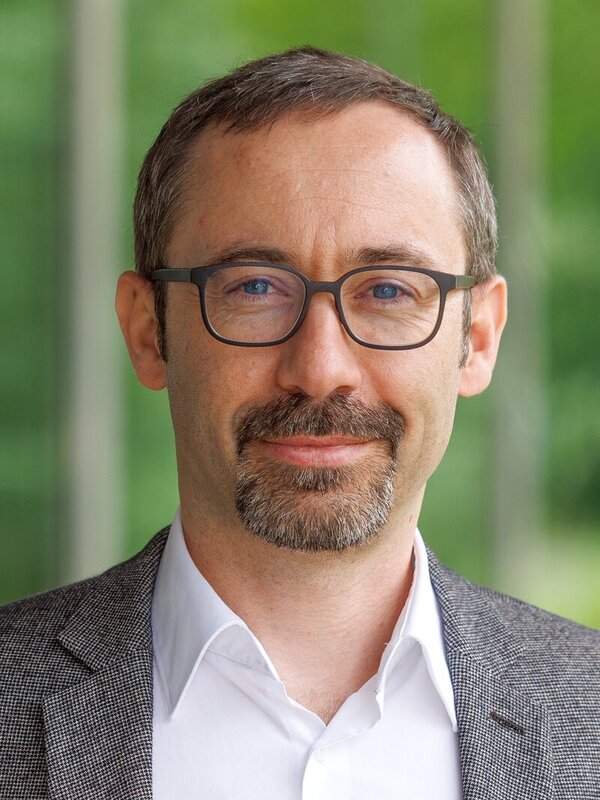
"Lors de leur assemblée générale annuelle, les membres du Swiss Malaria Group ont élu le professeur Manuel Hetzel comme nouveau président. Manuel Hetzel est chef de groupe de recherche à l'Institut tropical et de santé publique suisse (Swiss TPH) et professeur d'épidémiologie à l'Université de Bâle. À ce titre, il s'occupe principalement des mesures de lutte contre le paludisme. Il succède au professeur Christian Lengeler, qui remet son mandat après six ans de présidence et plus de seize ans au sein du Swiss Malaria Group."
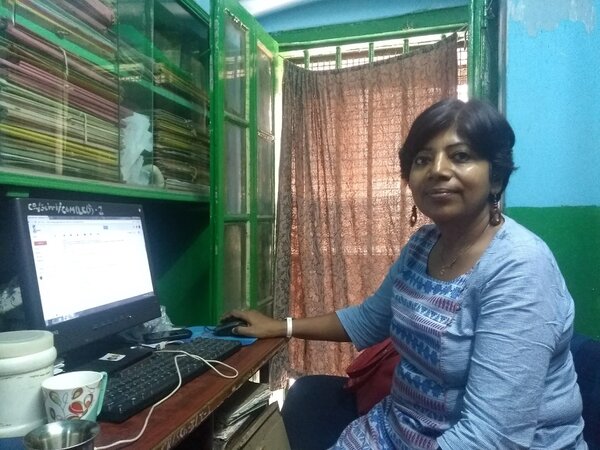
"Calcutta Rescue students have just scored their best-ever results with 30 out of 31 candidates passing the Madhyamik (Year 10) exams, and 13 out of 14 passing the Year 12 exams. The results are a tribute to the skill and huge dedication of CR’s head of education Ananya who has radically reworked the curriculum in recent years and to her team of teachers who have been taking part in a two-year training course organised by UK charity the Helga Todd Foundation."

"An increased focus on primary care, health promotion and disease prevention were the centrepieces of a new medical strategy for the charity which was unveiled at its International Meeting in Bristol, UK, in May. The strategy is the result of five months’ work by a 10-strong team which included volunteer doctors and researchers from Europe, as well as key staff in Kolkata. Introducing the strategy, charity CEO, Jaydeep, said: “We can’t do everything, we have limited resources, where do we want to focus our efforts and resources?”
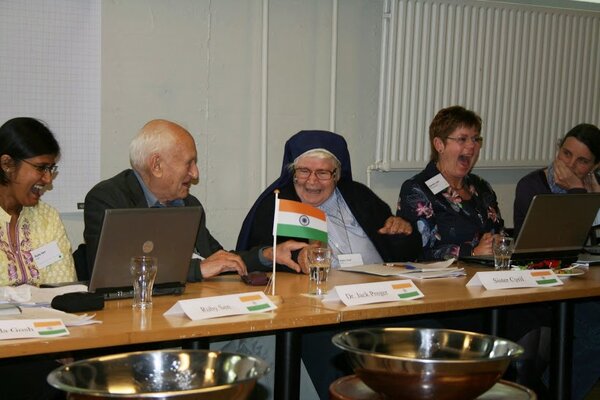
We were plunged into mourning this month with the death of one of the world’s most inspiring educationalists, Sister Cyril Mooney, who was a leading light at our organisation for 22 years.
"Sister Cyril, passed away in Kolkata on Saturday, June 24, aged 86, and our projects closed early on the day of her funeral, three days later, so that more than 100 staff could attend her funeral in St Thomas Church in Middleton Row, near where Dr Jack, CR’s founder, established his first clinic. She first got involved with Calcutta Rescue in 1996 when she was head of Loreto Day School in Sealdah. Hugely impressed by our work, which aligned with her own deep commitment to serve the poor, she offered to let it open a health clinic for people living on the streets and slums in the grounds of the school."
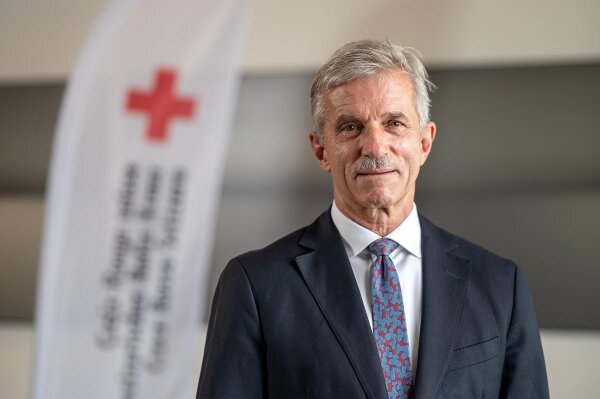
Communiqué aux médias
"Les délégués de l’Assemblée de la Croix-Rouge ont élu Thomas Zeltner à la présidence de la Croix-Rouge suisse (CRS). Celui qui a dirigé pendant de longues années l’Office fédéral de la santé publique entend s’atteler activement aux défis qui se posent actuel-lement au sein de l’organisation. La composition du Conseil de la Croix-Rouge sera soumise dans les mois qui viennent à une vaste consultation au sein de la CRS. Avec le professeur Thomas Zeltner, c’est une personnalité expérimentée au bénéfice d’un réseau remarquable tant à l’intérieur qu’à l’extérieur de la CRS qui prend les rênes de la plus grande organisation humanitaire de Suisse."
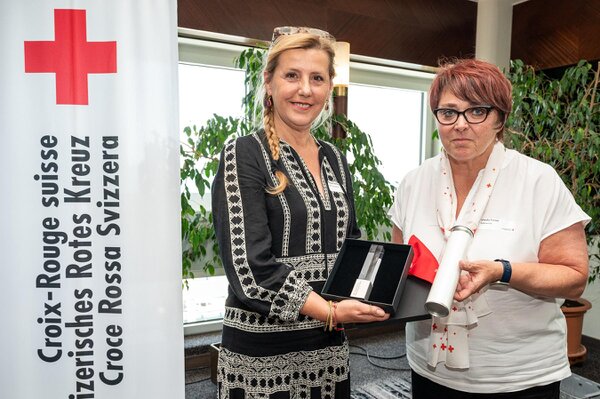
"SAO Association se voit décerner le Prix Croix-Rouge 2023 par la Croix-Rouge suisse en récompense de son engagement en faveur des femmes contraintes à l’exil. L’association bernoise Mazay remporte le prix d’encouragement. En son sein, des bénévoles œuvrent pour l’intégration sociale de requérants d’asile et de personnes réfugiées. Depuis 2016, SAO Association apporte son soutien aux femmes en fuite à leur arrivée en Grèce. L’organisation aide ces personnes particulièrement vulnérables à s’orienter dans les arcanes du système d’asile et de migration.-2
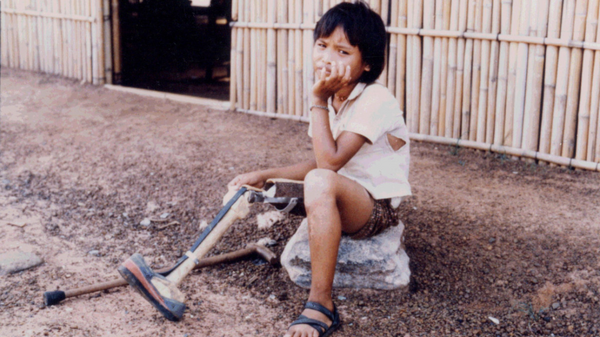
"Depuis notre création en 1982, nous sommes engagés à soutenir les personnes handicapées ou vulnérables et les populations affectées par les crises humanitaires à travers le monde. Alors que nous célébrons nos 40 ans, nous vous proposons de revenir sur quelques moments où nous sommes intervenus en urgence et qui ont marqués notre histoire. Notre histoire commence à la frontière entre le Cambodge et la Thaïlande, dans le camp de réfugiés de Kao I Dang, où vivent des milliers de réfugiés. L'injustice que vivent les victimes de mines antipersonnel, presque toutes des civils, est flagrante aux yeux de jeunes médecins français."
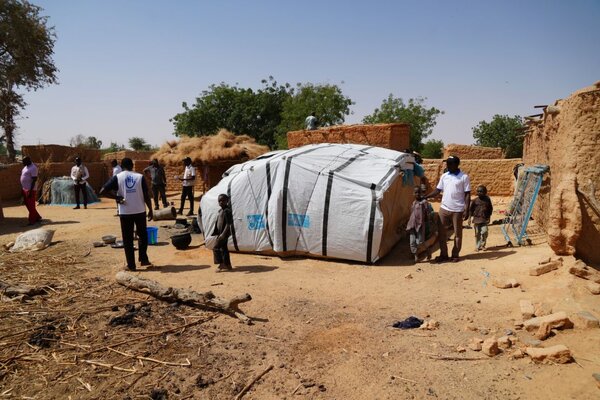
"Pluies diluviennes, grêle : les événements climatiques extrêmes menacent les habitants comme Ali qui a perdu sa maison et sa récolte en 2021. Découvrez notre engagement à réduire les effets néfastes du changement climatique sur les populations vulnérables et marginalisées du monde."

"L’Institut de santé globale de l’Université de Genève propose une formation en cours d’emploi, la Maîtrise d’études avancées en Santé publique (MAS-SP), qui pourrait être d’intérêt pour les professionnels de la santé. Ce master, pionnier en Suisse depuis sa première édition en 1990 est une formation en cours d’emploi, qui se déroule en français, sur 3 ans. Il est destiné aux professionnels de la santé et des secteurs connexes souhaitant devenir experts et leaders en santé publique et permet d’acquérir des connaissances et des compétences dans des domaines multiples. À ce jour, cette formation a permis de diplômer 290 experts en santé publique, aux profils professionnels très diversifiés, provenant de toute la Suisse, d’Europe ou d’autres continents. Le délai d’inscription au MAS en santé publique cette année a été prolongé jusqu’à fin août 2023. Pour plus de renseignements, nous vous prions de bien vouloir consulter le site internet : https://www.unige.ch/formcont/cours/mas-sante-publique ou adresser un courriel à Madame Manuela La Greca : info-mas-sp@unige.ch

SANTÉ SEXUELLE SUISSE approuve les postulats visant à évaluer le régime du délai et les soins dans la pratique
"En Suisse, même plus de 20 ans après l’introduction du régime du délai, il existe toujours des obstacles à l’accès à l’avortement, ce qui remet en question l’autodétermination des personnes concernées, même dans le cadre du régime du délai. SSCH salue les deux postulats déposés par des conseillères nationales de différents partis lors de la session d’été. Ceux-ci demandent une évaluation du régime actuel ainsi qu’un rapport sur l’accès et les obstacles existants à l’interruption de grossesse."

"Ce monitoring fournit des données quantitatives sur des thèmes choisis de la santé sexuelle. Il documente les prestations des centres de consultation en matière de grossesse reconnus ainsi que les prestations des centres spécialisés en santé sexuelle reconnus. Les thèmes abordés sont : la grossesse, la contraception, les infections sexuellement transmissibles (IST) et l’éducation sexuelle."
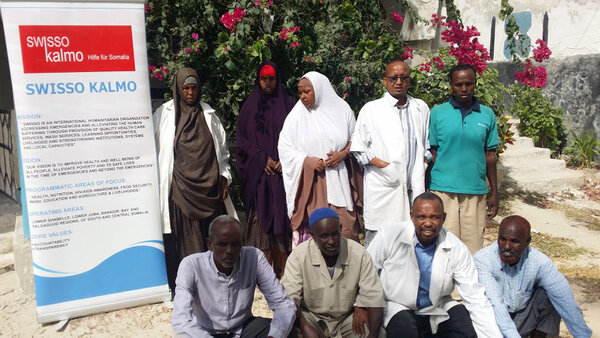
Aus einem Vortrag von Bashir Gobdon am Café de la paix am 27. März 2023 in Zürich
"Etwa 15,9 Millionen Menschen leben in Somalia, davon sind 3 Millionen Binnenvertriebene. 650‘000 Menschen sind aus Somalia geflohen. Die meisten Somalierinnen und Somalier sind in Nachbarländer, nach Kenia, dem Jemen und Äthiopien geflüchtet nur wenige nach Europa. Anfangs 2023 zählte man in der Schweiz 1‘783 somalische Flüchtlinge die vorläufig aufgenommen wurden. Aktuell sind rund 6,7 Millionen Somalierinnen und Somalier vom Hunger bedroht. Bei der letzten Hungersnot in Somalia in den Jahren 2011/12 starben mehr als eine Viertelmillion Menschen. Die Versorgung der vielen Menschen, die vom Krieg und der Dürre an die Ränder der Städte geflüchtet sind, ist sehr schwierig. Diese Flüchtlingslager wurden kürzlich auch durch Überschwemmungen heimgesucht. Durch die Corona Krise und durch den Krieg in der Ukraine haben die Nöte Somalias bei der UNO und bei Hilfsorganisationen weniger Priorität."
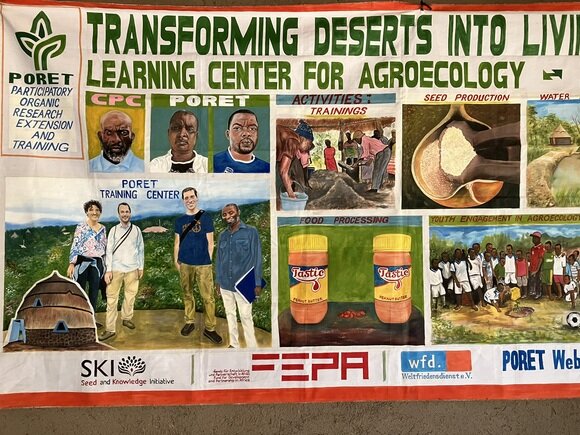
2023 steht noch immer unter dem Zeichen des Jubiläums für fepa und wir feiern. Sie sind dazu ganz herzlich eingeladen: am 9. September mit dem AfrikaKomitee Basel und am 29. September im kHaus Basel. Lassen Sie sich von Afrika mit seinen Klängen und Tänzen betören! Im neuesten Mitteilungsblatt haben wir wieder auf junge Autor:innen aus Simbabwe gesetzt: Sie berichten über um Gerechtigkeit und wie weit diese greift, von Klimagerechtigkeit über Geschlechtergerechtigkeit bis hin zur Rolle der Musik im Dialog über Gerechtigkeit. Wir berichten auch kurz über Aktuelles aus den Kontexten, in denen unsere Projektpartner:innen arbeiten:. Wir sprechen von der Gold-Mafia und der Abstimmung zum Klimaschutz in der Schweiz, von Morden an Whistleblowern und vielem mehr."
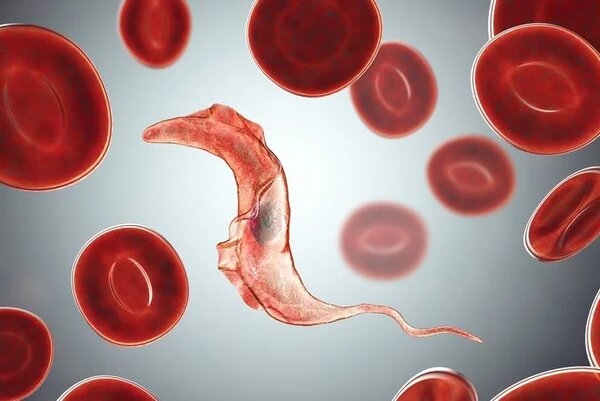
Press release: A drug discovery consortium led by Novartis, the Swiss Tropical and Public Health Institute (Swiss TPH) and the University of Glasgow has discovered a new class of compounds called cyanotriazoles (CTs).
"Scientists have identified a new class of compounds called cyanotriazoles that have the potential to effectively inhibit the growth of trypanosomes, the parasites responsible for Chagas disease and African sleeping sickness. The results, published yesterday in the journal Science, demonstrate that the compounds show no toxicity to human cells, raising hopes for the development of new and improved treatments for neglected tropical diseases. Chagas disease and human African trypanosomiasis (HAT), also known as African sleeping sickness, are significant global health challenges, particularly in Latin America and sub-Saharan Africa where millions of people are at risk. These neglected tropical diseases primarily affect impoverished communities and can be fatal if left untreated. Current treatments for Chagas disease in particular are poorly tolerated, require lengthy regimens, and come with safety concerns, leaving patients vulnerable to severe complications."
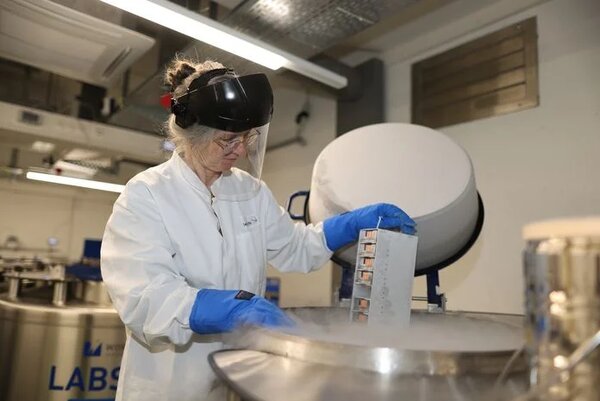
Forschende, Praxis, Verwaltung und Politik sind sich jedoch einig: Wir haben in der Schweiz grosse Datenlücken im Gesundheitsbereich.
"Wir leben in einer Zeit, in der Public-Health-Innovationen möglicherweise mehr zu Lebensverlängerung und Lebensqualität beitragen als medizinische Innovationen. Von dieser Idee lässt sich SAMW-Vorstandsmitglied Prof. Nicole Probst-Hensch, Professorin am Swiss Tropical and Public Health Institute (Swiss TPH), leiten. Im Schwerpunkt, der in Zusammenarbeit mit einem breit aufgestellten Team entstanden ist, zeigt sie auf, weshalb in der Schweiz finanzielle Ressourcen für Public-Health-Forschung und grosse Langzeitstudien mit Teilnehmenden aus der allgemeinen Bevölkerung nötig sind."
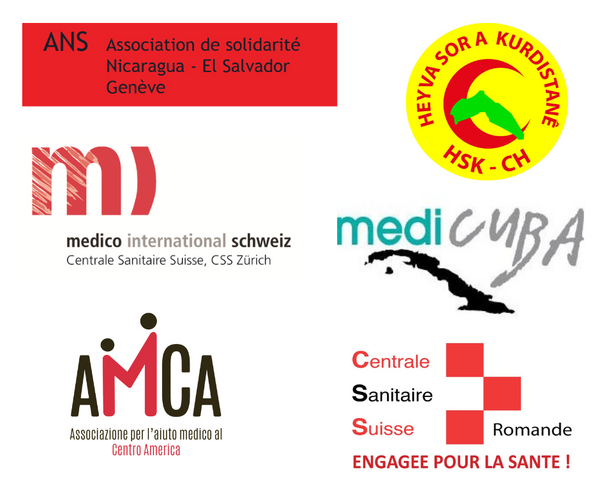
Cette pétition est lancée par différentes associations d’aide au développement ou d’aide humanitaire, concernées par les difficultés de transferts de fonds en Suisse: la Centrale Sanitaire Suisse Romande, mediCuba Suisse, l’Association de solidarité Nicaragua-El Salvador Genève, l’Associazione per l’Aiuto Medico al Centro America, medico international schweiz, l’Association Suisse-Cuba (section de Zurich) et le Croissant Rouge du Kurdistan Suisse
"(...) Bien que légalement l’aide humanitaire et au développement soient exemptées des sanctions économiques, des associations suisses connaissent depuis plusieurs années des entraves pour envoyer des fonds. Par obéissance anticipée envers les grandes puissances économiques, des banques comme l’UBS ou la Banque Cler et désormais des banques cantonales ainsi que PostFinance, refusent d’effectuer des transactions ou exigent une déclaration complexe pour les paiements. Ce blocage concerne aussi de petits virements qui ne sont pas destinés à l’étranger, mais d’un compte privé suisse vers un autre compte bancaire suisse. Ainsi, les ordres de paiement internes peuvent être refusés dès que le mot «Cuba», «Iran», «Iraq», «Kurdistan» ou «Syrie» apparaît dans le système. Sans même envoyer de fonds dans ces pays!"
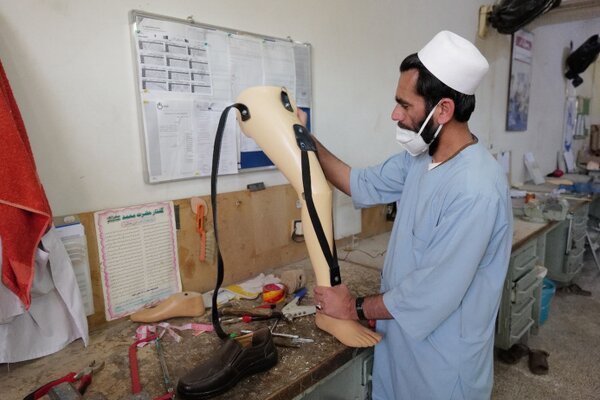
Rania Lebad, Handicap International, sur l'importance de la résolution visant à renforcer les services de réadaptation dans les systèmes de santé
L’Assemblée mondiale de la Santé, qui s’est tenue en mai dernier à Genève, a abouti à un résultat d’une grande importance pour les personnes ayant besoin d’accès à la réadaptation, spécialement les groupes marginalisés et les personnes en situation de handicap. La résolution visant à renforcer les services de réadaptation dans les systèmes de santé a été approuvée par consensus, marquant ainsi une avancée significative dans la reconnaissance de l’importance de la réadaptation pour la santé et le bien-être de toutes et tous.
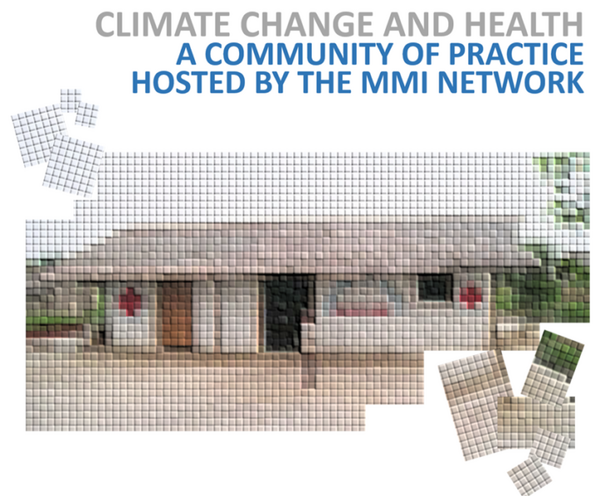
Proposed next meeting: Thursday, 27 July 2023, 15.00 CEST
"We herewith invite you to join an emerging civil society community of practice hosted by the Medicus Mundi International Network to explore, in a mixed team within and beyond our membership, the role of international health cooperation and global health advocacy in climate change and planetary health. With the community, we want to create a space of sharing experiences, knowledge and reflection between and explore what is to be done among organizations and people that are dealing with these topics: NGOs, academia, health institutions, and a broad range of social movements and civil society activists. While we want to use a perspective of global solidarity and decolonization, we need to have, in the team, participants with real experiences of what climate change and planetary health means at the place they live and work. If you are interested in being part of this community of practice, please join us."
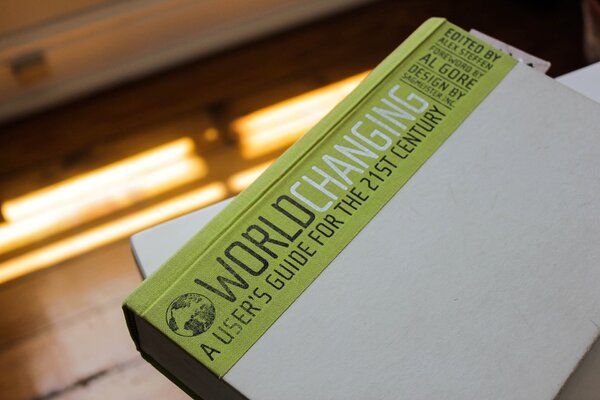
"Every day seems to bring a new headline about a devastating climate event. African countries aren’t spared. A “rain bomb” in South Africa. Flooding in Nigeria. Cyclones battering Mozambique, Malawi, Zimbabwe and Madagascar. Drought in Kenya. These events have enormous health and social effects, among them death, injuries, malnutrition and diseases (infectious and non-communicable). This all puts tremendous pressure on countries’ health systems, both in terms of caring for those affected and because facilities like hospitals and clinics are vulnerable to damage and destruction."

"In 2019, I happened to be visiting Phoenix on a 115-degree day. I had a meeting one afternoon about 10 blocks from the hotel where I was staying downtown. I gamely thought I’d brave the heat and walk to it. How bad could the heat really be? I grew up in California, not the Arctic. I thought I knew heat. I was wrong. After walking three blocks, I felt dizzy. After seven blocks, my heart was pounding. After 10 blocks, I thought I was a goner. That experience led me to spend the next three years researching and reporting a book about the dangers of extreme heat and how rising temperatures are reshaping our world."
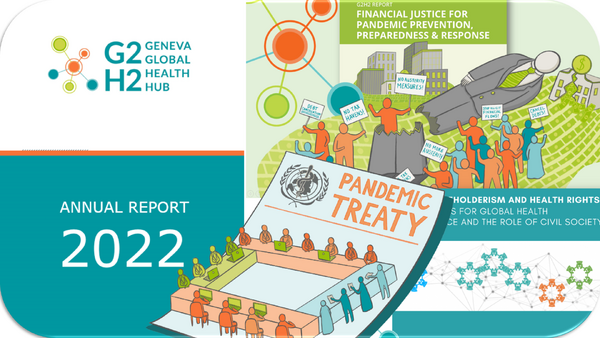
Introduction by Baba Aye and Nicoletta Dentico, G2H2 Co-Presidents
"As the World Health Assembly (WHA) marking the 75th year of the World Health Organization has just come to its end, it seems hard for us as civil society to celebrate developments in the way global public health is being addressed after the three years of the pandemic that shook the world. A sense of animated agitation can be perceived within the international health arena. Many more people attend the WHA, which may be regarded a positive indicator of attention to the essential domain for people’s lives and dignity that health is. Events are organized in numbers that are impossible to follow. New initiatives and entities are mushrooming all over to tackle health challenges that remain on the rise, well beyond the past pandemic shock. Yet, all this fervent activism does not really seem to lead to any sense of greater safety for the future of the right to health."
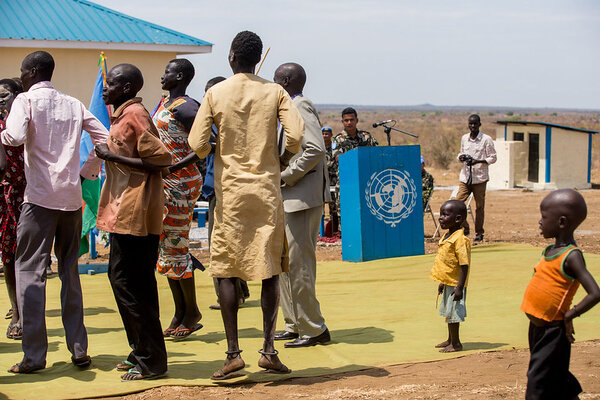
"Three multilateral development banks and the World Health Organization (WHO) announced the launch of an investment platform on Thursday aimed at supporting low and middle-income countries to build their primary healthcare (PHC) services via grants and concessional loans. PHC is widely recognised as the most effective way to improve health and well-being, and the recent World Health Assembly recognised it as the driver of universal health coverage, one of the United Nations Sustainable Development Goals (SDGs)."

"In 1948, with the adoption of the Universal Declaration of Human Rights (UDHR), equity was globally recognised as integral to human wellbeing. In the decades that have followed, advances were made worldwide in health and wellbeing with substantial reductions in extreme poverty and improvements in life expectancy and other health and social outcomes. Unfortunately, this progress coexists with persistent socioeconomic disparities within and between countries. In 2015, all the member states of the UN pledged to “leave no one behind” with the Sustainable Development Goals, furthering their commitments to a fairer world, and ensuring that as socioeconomic advantages of development accrue, those who are poor and marginalised could receive a greater share of the benefits of growth."

In the development sphere, the term ‘fragile’ has generally been used as a pejorative label to represent ‘fragile and conflict-affected states’ with chronic governance challenges.
"Development and global health research have long applied a binary definition of fragility. Within this, countries are either labelled fragile or not. However, the COVID-19 pandemic has thrown this distinction into question. Many settings previously thought of as fragile are now outperforming others.1 The World Bank has seen this binary designation as fundamental to its strategy. Using the Country Policy and Institutional Assessment, the World Bank evaluates performance across domains of economic management, social inclusion, equity and structural policy. Poor performers are included in the ‘fragile situations’ list.2 Most situations so identified are conflict affected."

"Global Health is experiencing a moment of reckoning over the field’s legacy and current structuring in a world facing multiple, intersecting challenges to health. While “decolonization” has emerged as the dominant frame to imagine change in the field, what the concept refers to and entails has become increasingly unclear. Despite warnings, the concept is now being used by elite Global North institutions and organization to imagine their reformation. In this article, I attempt to provide clarity to the issue of conceptualizing change in Global Health."
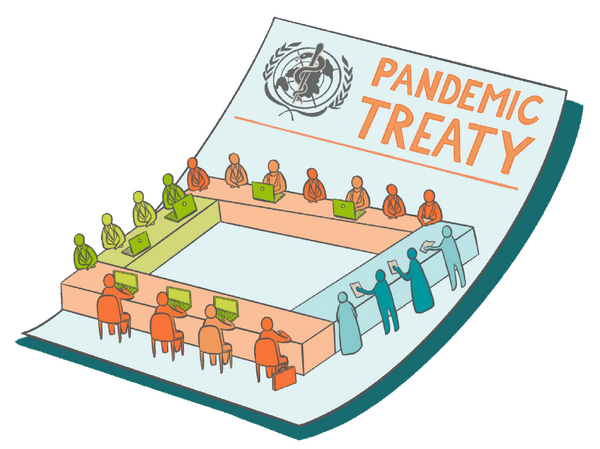
Resumed session of INB5, 12 June 2023; G2H2 statement under agenda item 2
"The INB Bureau's new text proposal clearly reflects the delicate weaving work for bringing Member States together on many diverging elements of the negotiation. However, clear safeguards in the treaty concerning the highly problematic role of the corporate sector, as persistently requested by the Geneva Global Health Hub, remain ignored. The WHO Tobacco Convention is the model to follow, yet we see incomprehensible resistance to setting ground rules to protect the governance of the new instrument from commercial influence. Future negotiations must address this. We regret reading a weakened draft in other fields like human rights or access and benefit sharing, as well as insufficient involvement of Civil Society in pandemic prevention, preparedness and response."

A series of periodic briefings on the state of global reforms for pandemic preparedness and response - Second Issue
"Welcome to the second issue of the Governing Pandemics Snapshot, a publication aiming to provide a concise, periodic overview on the state of efforts to strengthen global pandemic preparedness and response (PPR). This second issue provides updates on negotiations over the WHO Pandemic Accord and parallel talk on amendments to the International Health Regulations. It reexamines the financing of PPR and raises the question of how the ambitious new commitments envisioned for the WHO Pandemic Accord can be financed, especially considering the decrease in government spending on preparedness and insufficient donor pledges. Finally, it provides insights into the thorny question of how “medical countermeasures” might be handled in either accord, where North-South divides persist. In addition, there are questions about who will call the shots on a new global countermeasures platform – the G7, G20, or WHO?"

New project funded by Fondation Botnar
"While they offer the opportunity to speed progress towards the Sustainable Development Goals, digital technologies and artificial intelligence are designed, accessed and used in a context shaped by profound inequalities, both among and within countries. UN leaders have affirmed that “human rights should be at the heart of tech governance”, and high-level policy discussions over the next few years could represent a turning point. Young people and civil society in low- and middle-income countries have had little voice in digital governance, but they must have a role in shaping those discussions, or risk missing the opportunity to establish rights-based digital governance for the future."

By Sara (Meg) Davis, Professor of Digital Health and Rights at University of Warwick and an Associated Researcher at the Geneva Graduate Institute
"At a critical moment in the global digital transformation, with media and world leaders debating whether artificial intelligence (AI) might pose a future existential threat to humans, are we talking enough about the harms already being done in the present? A new thematic report to the UN Human Rights Council from the UN Special Rapporteur on the Right of Everyone to the Highest Attainable Standard of Physical and Mental Health, Dr. Tlaleng Mofokeng, highlights the real-world threats we face in the ongoing spread of digital technologies in global health, some real benefits, and the urgent need for a broader public conversation about human rights and health in the digital age."
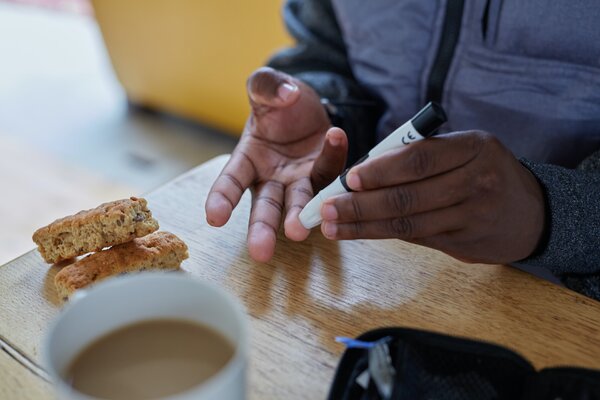
"Diabetes is one of the leading causes of death and disability worldwide, and affects people regardless of country, age group, or sex. Using the most recent evidentiary and analytical framework from the Global Burden of Diseases, Injuries, and Risk Factors Study (GBD), we produced location-specific, age-specific, and sex-specific estimates of diabetes prevalence and burden from 1990 to 2021, the proportion of type 1 and type 2 diabetes in 2021, the proportion of the type 2 diabetes burden attributable to selected risk factors, and projections of diabetes prevalence through 2050."
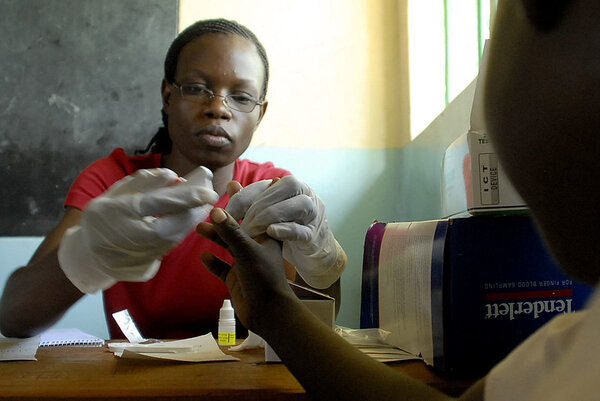
La stratégie quinquennale actuelle du Fonds, qui débute cette année, préconise explicitement l'intégration des services de prévention, de dépistage et de traitement des maladies chroniques (MNT) et soutient les services de lutte contre la tuberculose qui traitent le diabète et d'autres maladies. D'une part, parce que les personnes atteintes du VIH et de la tuberculose sont plus vulnérables aux maladies chroniques que le reste de la population, notamment en raison des traitements antirétroviraux, et d'autre part, parce que cette intégration doit renforcer la mise en place de systèmes de santé résistants et durables. Si les demandes des pays en ce sens sont approuvées, il pourrait s'agir d'un tournant, car les fonds mis à disposition permettraient aux pays de réorienter leurs systèmes de santé. Plusieurs pays ont déjà saisi l'opportunité de développer les services de MNT affaiblis par des interventions sanitaires isolées et axées sur les maladies qui reçoivent le plus d'attention de la part des donateurs.
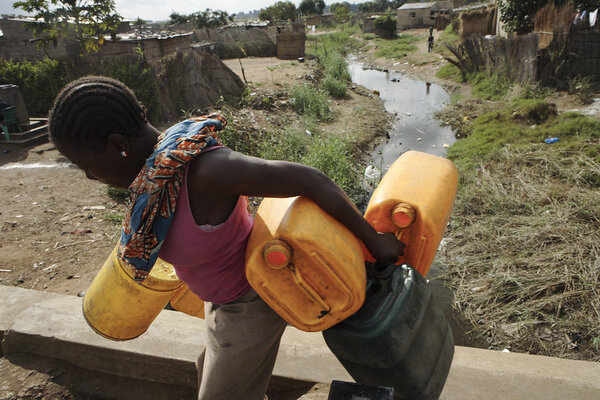
Women and girls responsible for fetching water in 7 out of 10 households without supplies on premises, according to first in-depth analysis of gender inequalities in drinking water, sanitation, and hygiene (WASH) in households
"Globally, women are most likely to be responsible for fetching water for households, while girls are nearly twice as likely as boys to bear the responsibility, and spend more time doing it each day, according to a new report released today by UNICEF and WHO. Progress on household drinking water, sanitation and hygiene (WASH) 2000-2022: Special focus on gender – which provides the first in-depth analysis of gender inequalities in WASH – also notes that women and girls are more likely to feel unsafe using a toilet outside of the home and disproportionately feel the impact of lack of hygiene."

Wide-ranging analysis
"Emboldened anti-abortion advocates, stalled policies on safe abortions, and resistance against reproductive health efforts. That has been the “chilling” impact worldwide, from India to Nigeria, from last year’s U.S. Supreme Court ruling that effectively revoked the constitutional right to abortion."

"A Madagascar : Pour travailler dans la pharmacie de trois structures de santé (dispensaires Aina Vao, Mahasoa et Fanantenana) dans la ville portuaire de Mahajanga, à Madagascar. En Tanzanie : Pour travailler dans la pharmacie de l’hôpital de Lugala, ainsi que dans l’hôpital de Mahenge, dans les haut-plateaux de la région de Morogoro. Durée : Dès que possible pour une période d’une année. Pour des raisons administratives, nous ne pouvons prendre en considération que les candidat.e.s résidant.e.s en Suisse. Nous nous réjouissons de recevoir votre dossier de candidature (CV et lettre de motivation) par email à l’adresse suivante : info@psf.ch."

"Funktion: Verantwortung für Ressort Entwicklungsprojekte, Coaching / Supervision der Projekte (eigene und Förderprojekte). Ziel der Stelle: Fachliche Sicherstellung eines kompetenten Coachings der internen und externen Projektverantwortlichen, strategische Entwicklung der Projektlandschaft. Hauptaufgaben: Mitarbeit bei Strategischer Führung der Stiftung und Überprüfung der Zielerreichung mit Schwerpunkt internationaler Entwicklungszusammenarbeit. Kontakt: Manuela Eggli, Leiterin Geschäftsstelle. Email: manuela.eggli@nhsf.ch
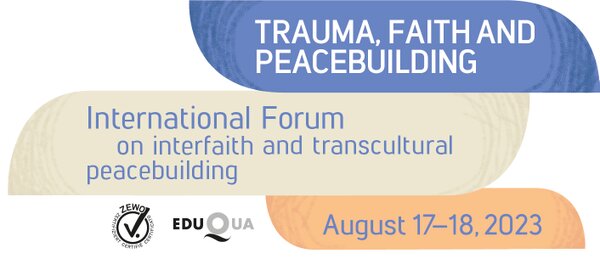
mission 21 "Many of Mission 21's partner churches and organizations live in crisis and conflict regions. Therefore, interreligious and transcultural peacebuilding is a main topic of cooperation. The forum will feature presentations and discussions on how peace initiatives from different contexts can support each other. The topic of the two-day online meeting is the role of religion and spirituality in dealing with trauma. You will also have the opportunity to meet experts from our partner churches and organizations in Nigeria, Bolivia and Indonesia in workshops exchange." The event is open to the public and free of charge.

Swiss Society of Tropical Medicine and Parasitology (SSTMP) "On 7/8 September 2023, the annual scientific meeting and general assembly of the Swiss Society of Tropical Medicine and Parasitology - SSTMP – will take place at the Swiss Tropical and Public Health Institute (Swiss TPH) in Allschwil (Basel). Our exciting programme is headlined by two outstanding keynote speakers: Robin B. Gasser (University of Melbourne, Australia), presenting about "Understanding of parasites at the molecular level to discover new interventions" and Amaya Bustinduy (London School of Hygiene and Tropical Medicine, UK), presenting about "100 years of neglect in paediatric and genital schistosomiasis"."

Université de Genève "L’Institut de santé globale de l’Université de Genève propose une formation en cours d’emploi, la Maîtrise d’études avancées en Santé publique (MAS-SP), qui pourrait être d’intérêt pour les professionnels de la santé. Ce master, pionnier en Suisse depuis sa première édition en 1990 est une formation en cours d’emploi, qui se déroule en français, sur 3 ans. Il est destiné aux professionnels de la santé et des secteurs connexes souhaitant devenir experts et leaders en santé publique et permet d’acquérir des connaissances et des compétences dans des domaines multiples. Pour plus de renseignements, nous vous prions de bien vouloir consulter le site internet : https://www.unige.ch/formcont/cours/mas-sante-publique ou adresser un courriel à Madame Manuela La Greca : info-mas-sp@unige.ch
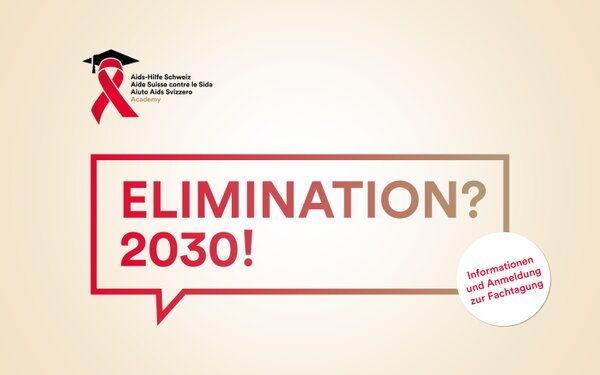
Aide Suisse contre le Sida "La communauté mondiale et notre association ont des objectifs ambitieux : éliminer le VIH d’ici 2030, éliminer l’hépatite d’ici 2030 et réduire la syphilis, la gonorrhée, etc. Thème du colloque de l’Aide Suisse contre le Sida: comment concrétiser ces visions? Ce colloque interdisciplinaire s’adresse aux professionel·x·les, aux représentant·x·es d’organisations communautaires et à toutes les personnes intéressées."

Medicus Mundi Switzerland MMS is celebrating its 50th anniversary this year. On this occasion MMS will explore at the jubilee Symposium how the work and the role of Civil Societies in International Health Cooperation and in Global Health have changed and evolved. (...) While many organisations have since long described their work as an equal cooperation with their partners in the Global South rather than «aid», working practices are still too often based on power structures which perpetuate dependencies and prevent the development of local capacity.